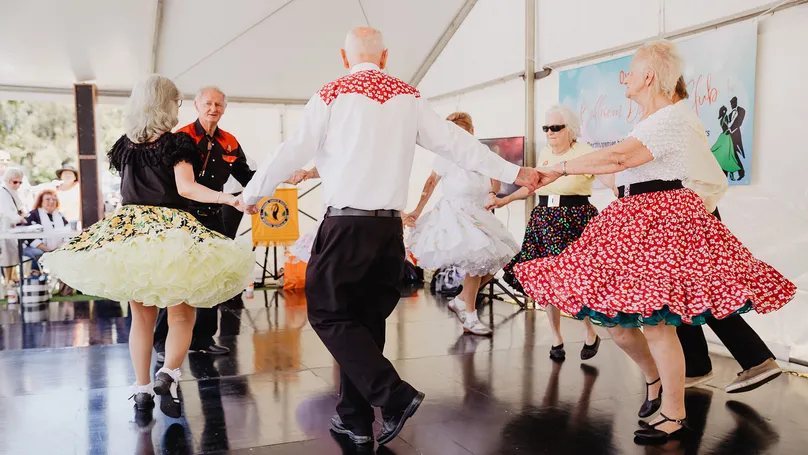Myth busting
Age is only a number! Don't let unhelpful thoughts hold you back in later life; it's time to change the way you think about ageing. Learn about longevity and bust some common ageing myths so you can stay happier and healthier for longer.
Common ageing myths

As you get older, it’s easy to think that you know everything there is to know about ageing and what it means for your life. But the truth about ageing might surprise you.
Did you know that how you think and feel about ageing has a huge impact on your health and independence?
We want to change conversations about getting older. By challenging some common ageing assumptions, you can stay healthy and independent for longer.
Let's bust a few myths so you can age your way!
A huge 75% is determined by your lifestyle choices. These choices include:
- Whether you exercise and how often
- If you prioritise good sleep
- What you eat and drink
- How much you engage with others and your local community
- How much you enjoy your home environment
- Whether you try new things or continue to learn
- How often you challenge your brain
With control over many of these lifestyle factors, you can influence how you age.
Read more about how to take control of your ageing.
Harvard scientists discovered that as you get older, the nerve cells in your brain grow longer and branch out more. This makes connections with distant parts of the brain stronger.
This means older people are able to make connections between different types of new information. It makes it easier to understand bigger ideas.
Getting older means you keep learning! Learn more about learning new things as you age.
Based on current statistics, 9% of Australians over 65 suffer from dementia. That means that 91% don't!
The top three ways to promote brain health and prevent decline, according to Neuroscience Research Australia, are:
- Regular physical activity and strength training
- Eating a healthy diet
- Keeping your brain active
Scientists at the University of Edinburgh found that personality traits keep changing.
Many people think getting older means getting worse, but actually, as you age, your personality shifts gradually. This can have some unexpected advantages.
As you age, you become more conscientious and agreeable, less neurotic, and more empathetic and trusting. Your willpower increases, you have a better sense of humour, and you have greater control over your emotions.
These findings suggest that the stereotype of older people being grumpy and set in their ways is a false one! You can do anything you put your mind to!
You might think that the older you get, the less exercise you should do. Especially if you have a chronic condition.
But studies show that you have a lot more to gain by being active.
Inactivity as you age can lead to a loss of independence. Physical activity is accessible to most people, regardless of age or health condition.
In fact, physical activity helps you:
- Manage some chronic conditions
- Improve balance and stability
- Prevent future falls
- Maintain independence
A number of studies have shown that staying healthy changes the chemicals in your brain and improves your mood. And the positive effects don’t stop there.
Other benefits of making healthy choices include:
- Greater fitness
- More mobility
- Improved mental health
- Increased independence
That means healthier choices can actually lead to more fun, more often!
You get to choose how to be social and active. Pick activities that you enjoy and have some fun! It’s all about feeling the benefits of making healthy lifestyle choices.
As technology continues to improve, maintaining relationships has never been easier.
But, as helpful as technology can be, it can also be hard to use. Fear not! There are lots of free community classes that can teach you how to use a computer or smartphone. The best place to check for available classes is your local library. If you can’t find a class, you can always ask a friend, family member, or neighbour to help you.
Would you like to make new friends? There are plenty of ways you can meet and connect with new people regardless of your age. Try joining a local group or attending an event about things you're passionate about. You can take the LiveUp quiz to find activities near you.
Do you think only young people use the Internet? The statistics might surprise you. Studies show that Australians over 65 spend more than three hours a day browsing the internet. Older people are responsible for 20% of Australia’s total internet traffic.
According to the Australian Communication and Media Authority, in 2020, here's what people over 65 were up to:
- 76% used a mobile phone to access the internet
- 55% used social media
- 95% used email
In Australia, 2.5 million people aged 65 and up have Facebook accounts, and they're pretty active on them!